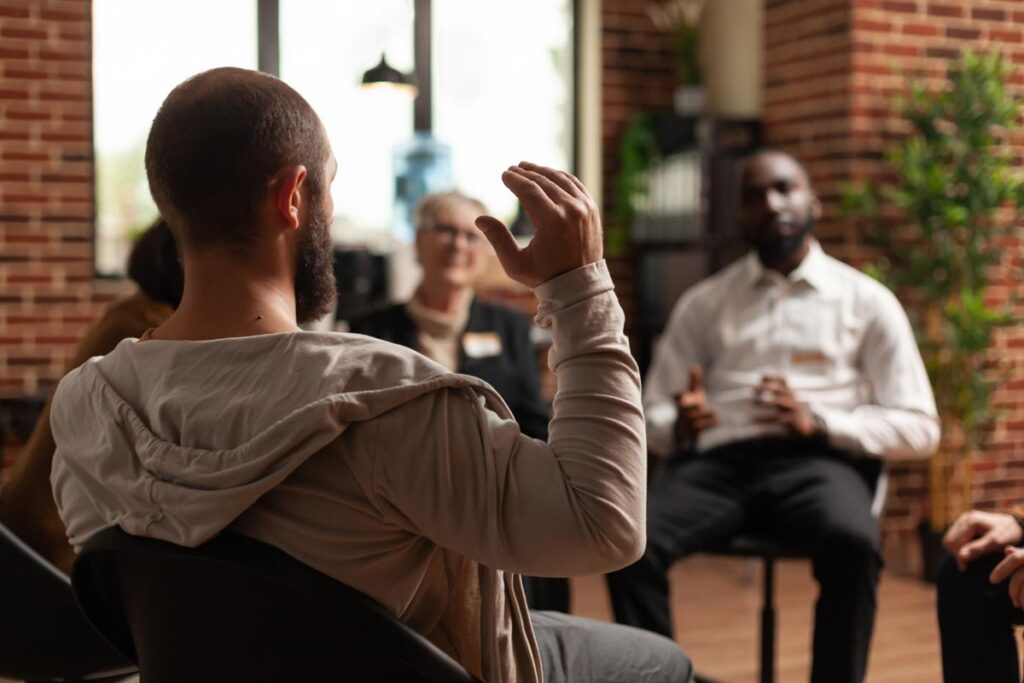Do you shudder at the thought of going to family get-togethers because of the inevitable arguments due to intoxicated family members? Maybe that family member is an immediate loved one, such as a brother, sister, or parent? Have they gotten into fights with you because of your suggestions to slow down or that you shouldn’t drink anymore? It can be challenging to be around someone who drinks to the point of harming themselves or others. Many people wish to help their loved ones that are alcoholics in denial.
If you or a loved one is experiencing alcohol use disorder, it could be essential to seek alcohol addiction treatment. Contact us at 866.931.9312 to
How to Help an Alcoholic in Denial
First, you must realize that as much as you care about your loved ones, it is not your responsibility to make them change. You can’t force a person into recovery; you must accept that only they can choose this step.
Second, learn as much as possible about alcohol use disorder and its effects to understand better what your loved one is going through. Being informed will help you communicate with them more effectively when the time comes.
Third, talk to them in a loving and non-judgmental way. It can be hard not to take alcohol abuse personally, but try to keep the conversation focused on facts and the potential consequences of their drinking.
Fourth, offer your unconditional love and support. Let them know that you’re there for them no matter what. Remind them that alcohol does not have to define their life.
Finally, if necessary, stage an intervention with the help of a professional interventionist. A trained interventionist will be able to give your loved one a chance to seek alcohol treatment and make changes in their lives for good.
If you or someone you know struggles with alcohol use disorder, don’t hesitate to contact Evoke Wellness at Miramar.
Helping vs. Enabling
It’s important to note the distinction between helping and enabling. Helping looks like this:
- Loving them without judgment
- Encouraging professional alcohol addiction treatment
- Being supportive of their decision to seek help
Enabling, however, looks like this:
- Making excuses for their behavior
- Taking responsibility for their drinking problem
- Financially supporting alcohol use, such as paying bills, fines, and for the drug itself
- Drinking with them or continuing to support their alcoholism in other ways
- Letting them do dangerous things without consequences, such as paying for a DUI lawyer
Finding the balance between helping and enabling can be challenging, but it’s critical to ensuring your loved one finds success in alcohol recovery.
How to Talk to an Alcoholic in Denial
If your loved one is in alcohol denial, knowing how to start a conversation can be challenging.
One of the best ways to open communication is to talk about your feelings and experiences with alcohol. Remember, alcohol addiction isn’t something that only affects a single person but also their family and friends as well. They may be more willing to listen if you emphasize the fact that alcohol has been impacting both of your lives.
You can also bring up specific incidents or examples of alcohol-related consequences, such as missed school or work, arguments with family members, or reckless behaviors that put them at risk. Let them know how their alcohol use affects everyone in the family and focus on the facts.
Above all, be supportive of them and their decisions. Even if your loved one isn’t ready for alcohol recovery yet, by talking about alcohol use disorder in a non-judgmental way, you can create an environment where it’s easier for them to find success when they’re ready.
Helping Alcoholics in Denial with Evoke at Miramar
Reach out to Evoke Wellness Miramar if you or your loved ones are struggling with alcohol use disorder and need alcohol addiction treatment help. Our team of compassionate professionals will provide the support, guidance, and treatment required to overcome alcohol addiction for good.
Contact us at 866.931.9312 to learn more about our programs.


